
COFFEEMAN good
Micro and Proud. Making an Impact When You’re Small
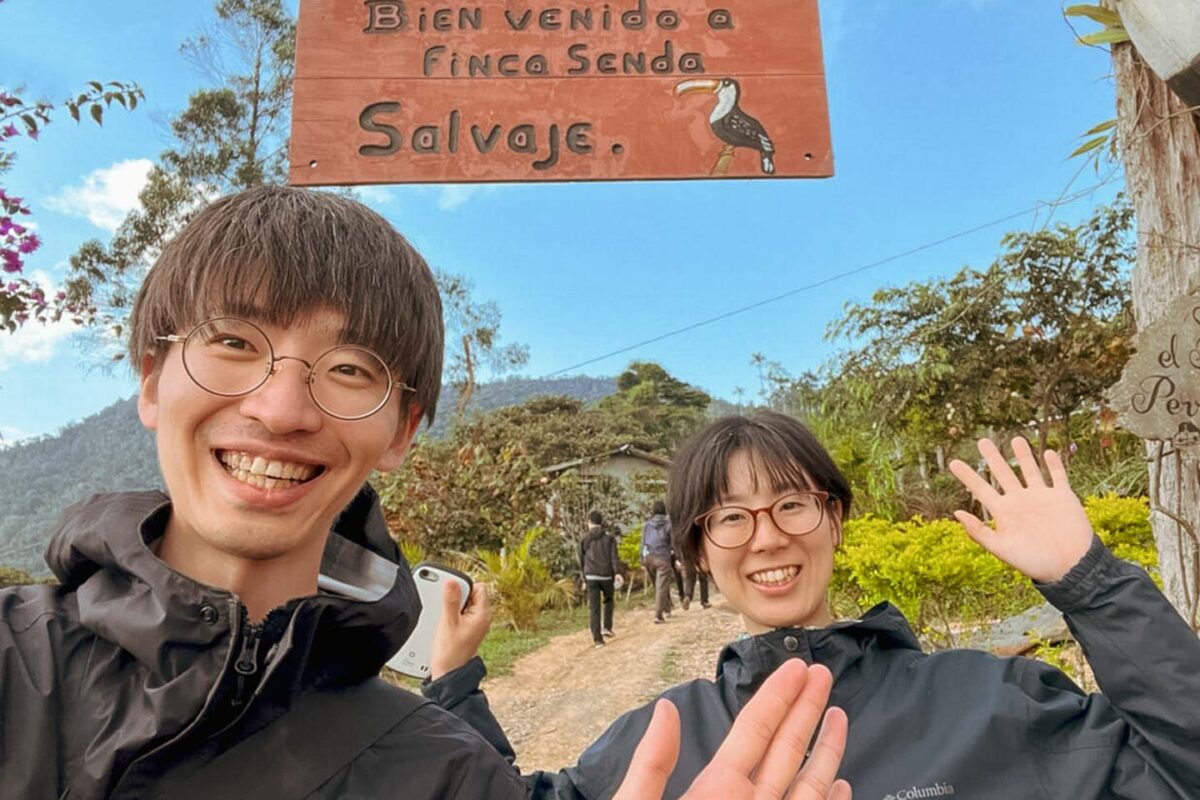
The COFFEEMAN good micro coffee bar in Aomori was established by founders Yudai and Yuri Hashimoto as a place for the local community to connect through coffee. And yet, the couple realized, they had neglected to foster a connection with an important part of this community: the producers. After a two-week trip to Bolivia and Peru as part of TYPICA Lab, they came back with a more proactive mindset and a new approach to their business.
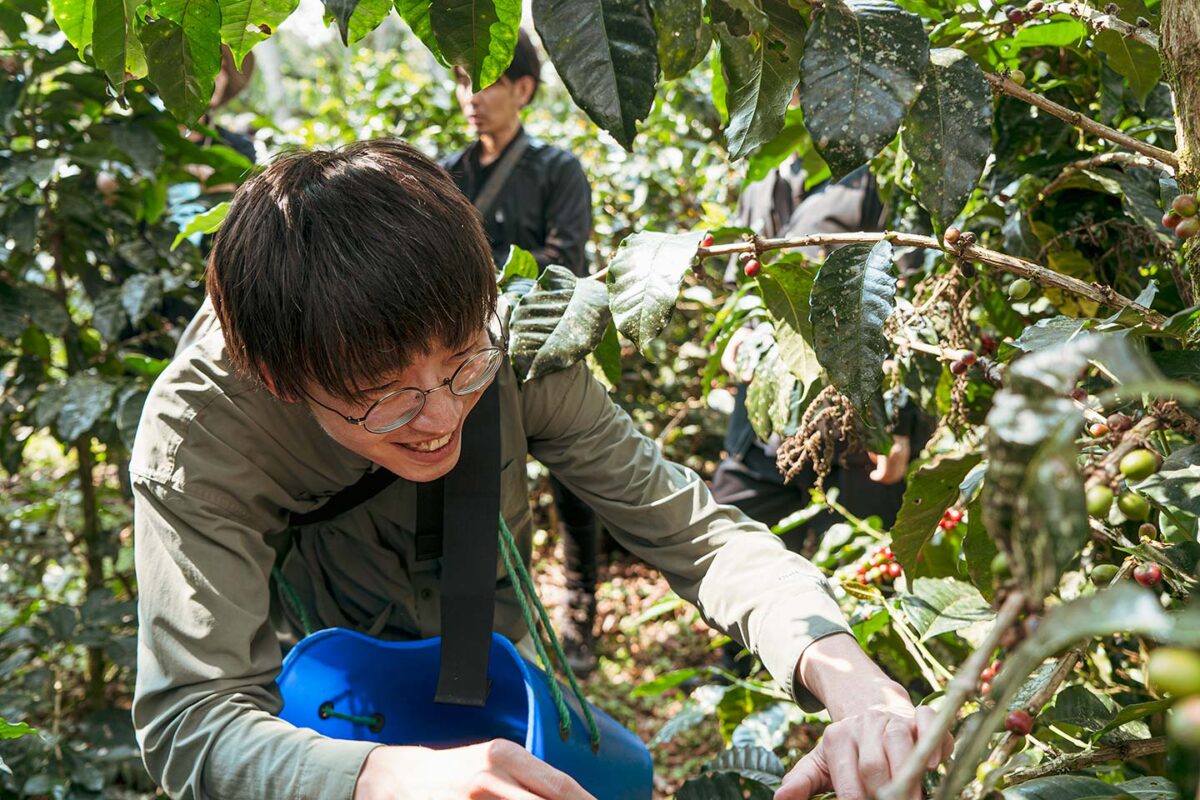
Growing slow, growing with intent
People often ask me, what’s most important for brewing good coffee, or what I prioritize when serving customers. But I never know how to answer. For me, every aspect of working with coffee is important, everything is a priority. It’s impossible to choose just one.
I’ve always taken my job seriously, but since participating in TYPICA Lab, I’ve become even more aware of how I’m treating our coffee. When we visited Finca Senda Salvaje Farm in Bolivia, Carmelo told me how every single bean he grows deserves his full attention, and I feel the same. Whenever I roast, I’m thinking of how I can make sure each bean gives its best.
I’ve never thought of my job as work, and now, since meeting the producers, it’s gotten to the stage where I’m enjoying it so much, it’s hard to even think of it as a job! Connecting with customers is something I’ve always loved about this job. Adding in this connection with the producers makes everything even better. That’s why we decided to redesign some of the packages to feature photos of the producers. We wanted the customers to share in the happiness we were feeling.
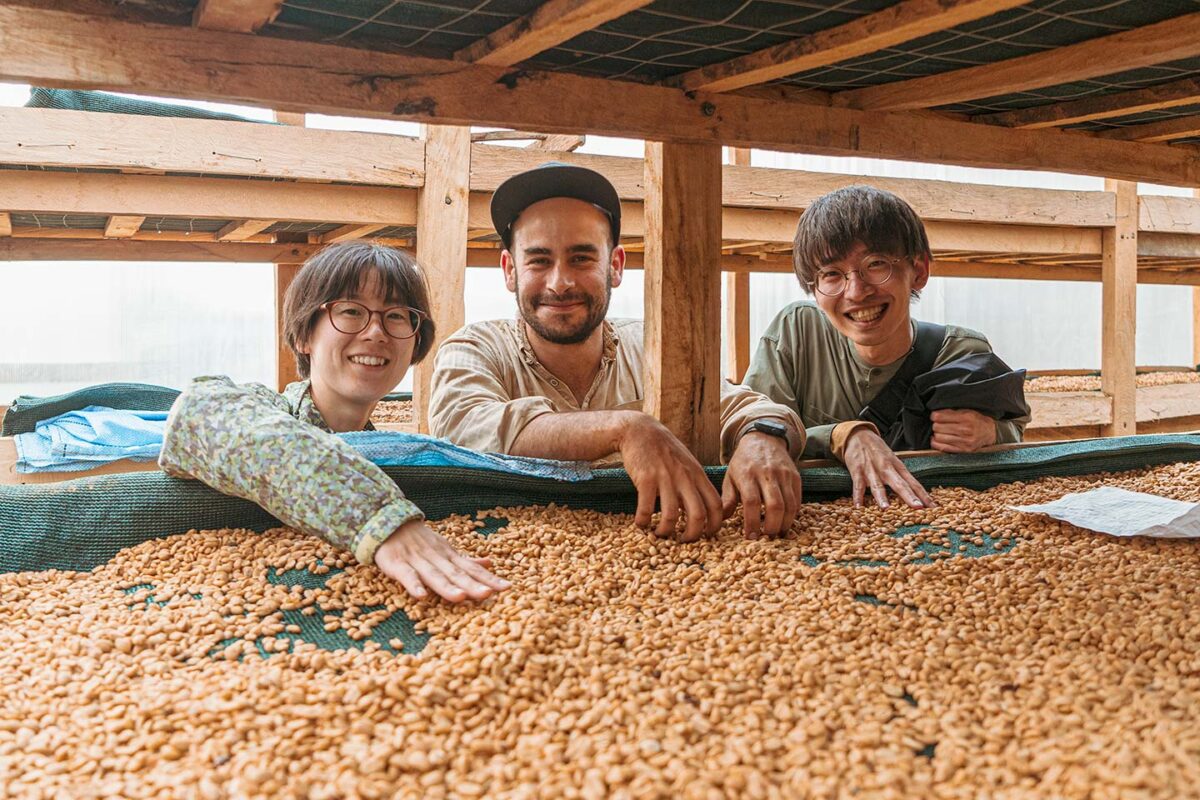
Yuri: “In the past, customers would always choose coffee by the country, but recently we’re seeing more customers ask for the producer by name. Our customers tell us that sharing stories about our encounters with producers makes them more real. It brings the two closer together, makes a more human connection, I think.”
But still, there’s only the two of us running a small shop. We know that if we made the business bigger, we could do more to help the producers. At the same time, there’s the fear that we might upset the balance between growth, service, and quality, and lose sight of our priorities and what we hold dear. That’s why we’re taking things slow and growing at a sustainable, comfortable pace.
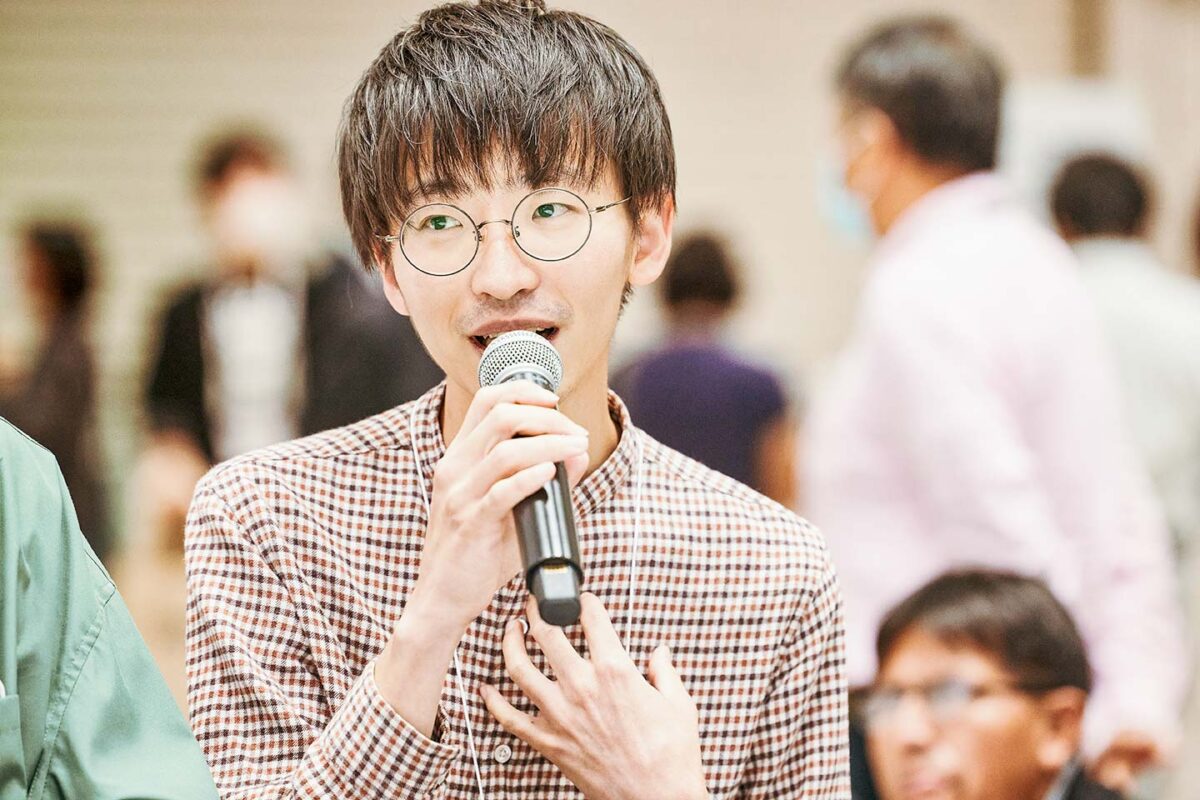
Taking a leap to make new connections
An underlying problem for all roasters is the lack of a tangible connection with the producers. While we do have access to printed and digital information on producers and coffee, it’s not the same as meeting someone in person. I’d become aware that not knowing anything about the producers, who they were or what lifestyle they had, was a problem.
Every year events like those hosted by the Specialty Coffee Association of Japan (SCAJ) had given me the opportunity to meet with producers, but I’d always held back. It wasn’t just the language barrier. I assumed that they wouldn’t want to talk to a small independent like me who only purchased a tiny amount, and felt bad taking up their time. So I gave up even trying and never approached them. But I still felt jealous when I watched other roasters casually walk up and chat with the producers like old friends.
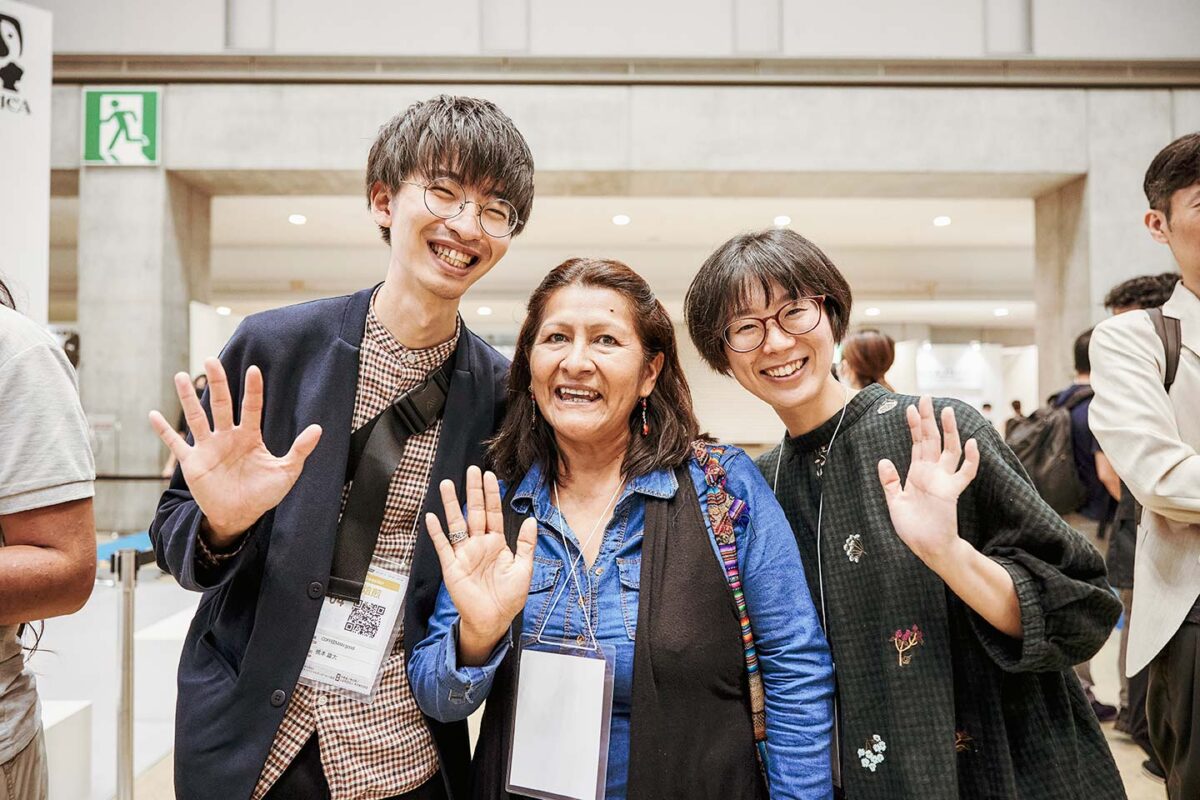
So when, at the TYPICA Annual Meeting (TAM) from October 11 to 14 and at the SCAJ event, I had a chance to meet up again with producers I’d met in Aomori and Bolivia, I surprised myself at how comfortable I was chatting with them. And they made me realize that you don’t have to be a big business to make a lasting connection.
I was also struck by what Gabriela from Finca Isabel said: “My farm is small, so I’ve never been able to connect with small coffee shops. That’s why I’m so grateful to have this chance to hear directly from baristas and roasters on the shop floor.”
When you think about it, the producers of Bolivia are more willing to take on board our “small” business, because a bigger-is-better philosophy hasn’t worked out for them.
I think the trip had a different meaning for Yuri. When we started our business, Yuri didn’t have any experience with coffee or hospitality and I think she was reluctant to participate in TYPICA Lab, feeling that somehow she didn’t deserve this chance.
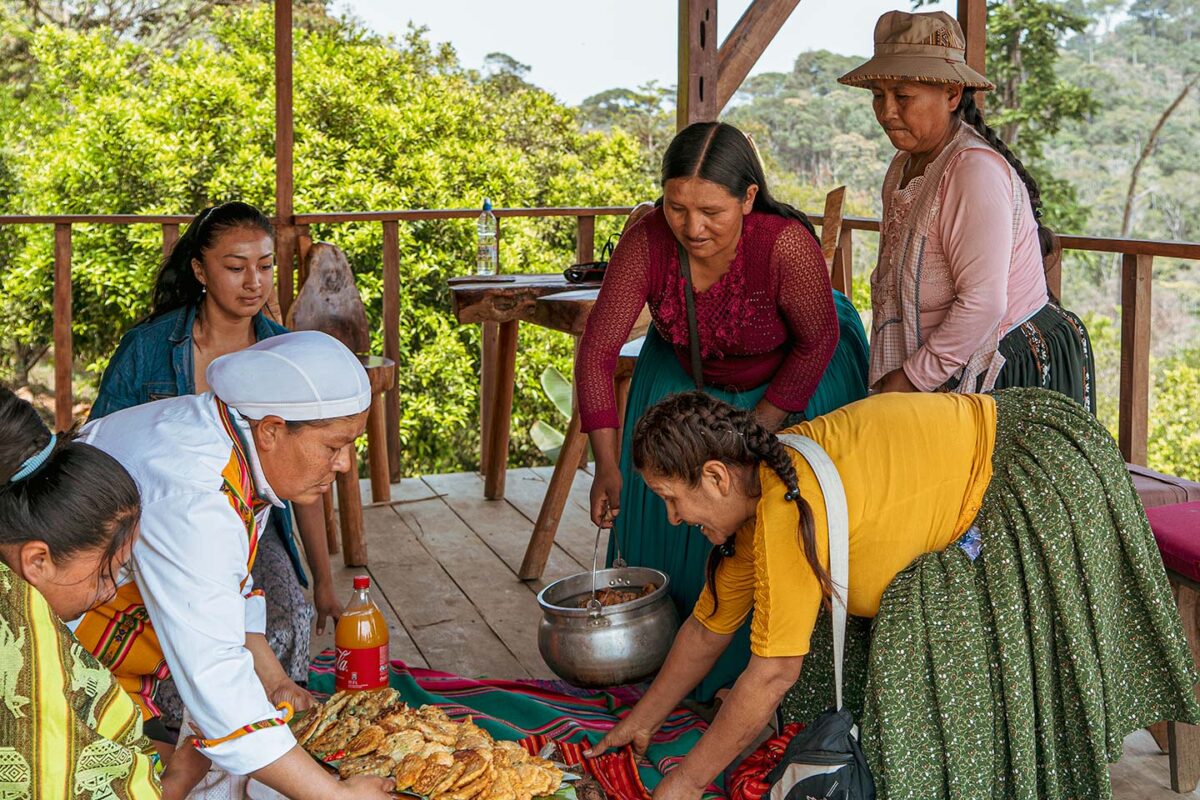
Yuri: “I can’t tell you how many times I was moved to tears during my trip. The first time was when we visited Nassia at her home. They surprised us with traditional music, dancing, and a wonderful feast, telling us how happy they were to welcome us. It was an incredible experience.
Although I couldn’t make it to the first few days of TYPICA Annual Meeting, Yudai told me how the producers we’d met were asking after me: how I was and when I’d be coming. Then when I finally made it there on the last day, I was truly moved by how happy people were to see me, and of course happy to see them too.”

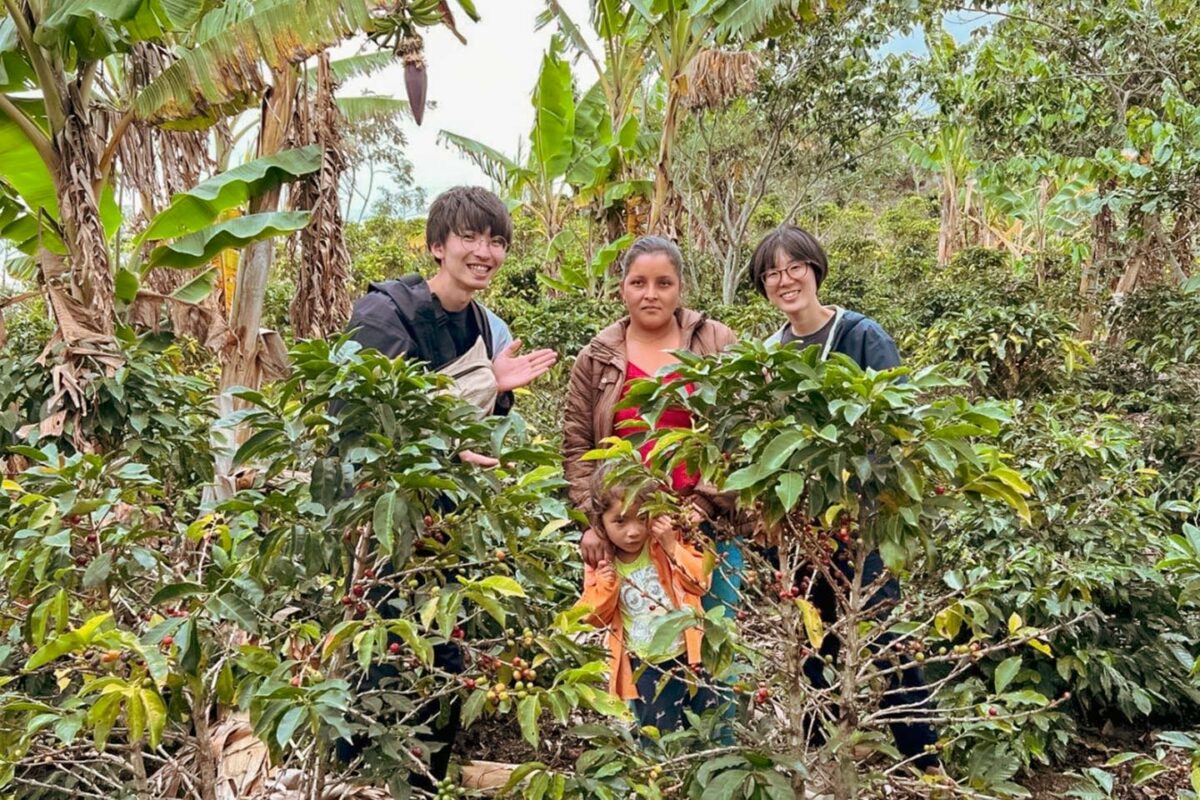
One gesture can change a future
The turning point came when we visited Peru. There was one producer in particular I was looking forward to seeing, a producer named Susi who we’d bought beans from two years earlier. Her beans were really popular with the customers but when I went to buy some last year, she was no longer on the list.
I wondered about it for a while, but wasn’t that concerned. I assumed she was in a similar situation to the producers in Bolivia, and was happily working on her produce for the next year.
So when I arrived at the farm, it was a huge shock. The standard of living was much lower than that in Bolivia, and there was no equipment. When the quality of the beans fluctuate, so does revenue, making it impossible to improve the standard of living. Perhaps influenced by her situation, Susi was wary of us when we arrived.
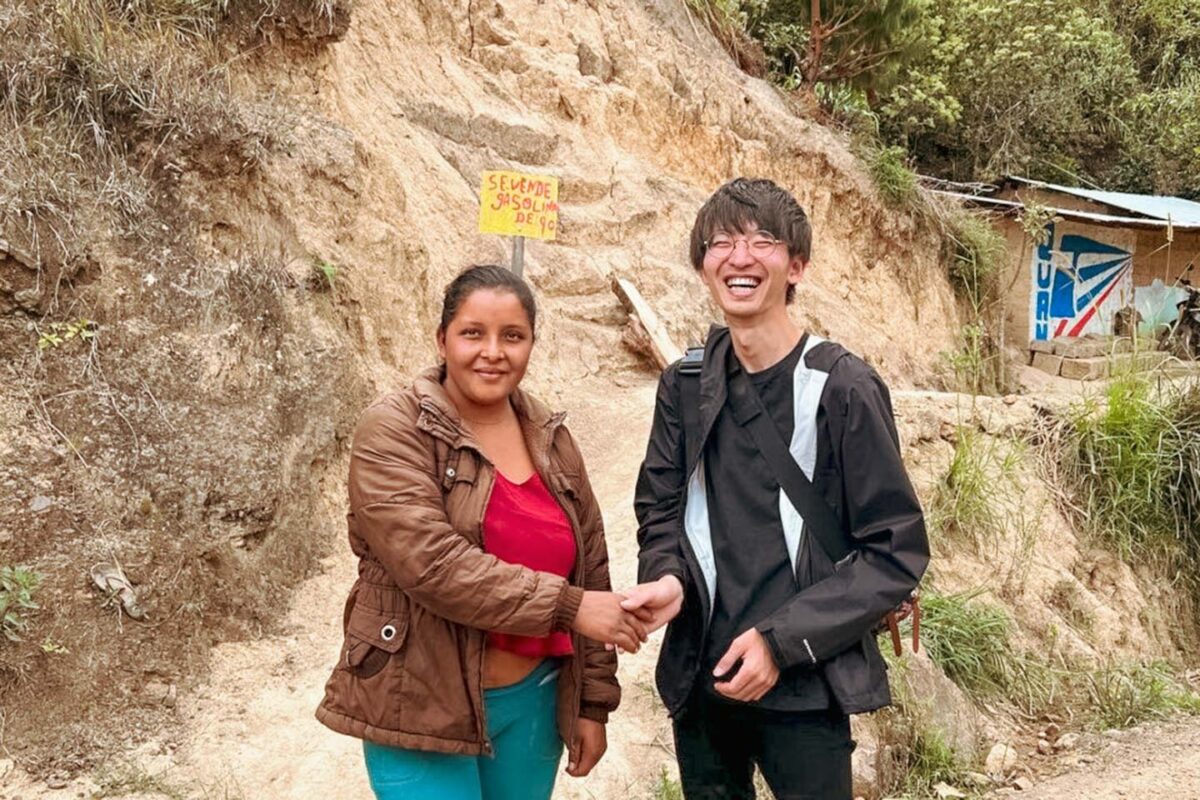
We learned that the quality of the beans had dropped because she didn’t have a drying rack, and that’s why she couldn’t get an offer last year. At around the equivalent of $550, a drying rack was a purchase that Susi could not afford.
“I’ll get the money you need to buy a drying rack, and you can go back to making great coffee.” When I made this proposal to Susi, her face instantly lit up. “I’ve wanted to do that for so long but never had the resources. Thank you so much!” As we shook hands on the deal, I felt that our purposes were aligned and united, and that working together we could bring about a significant change.
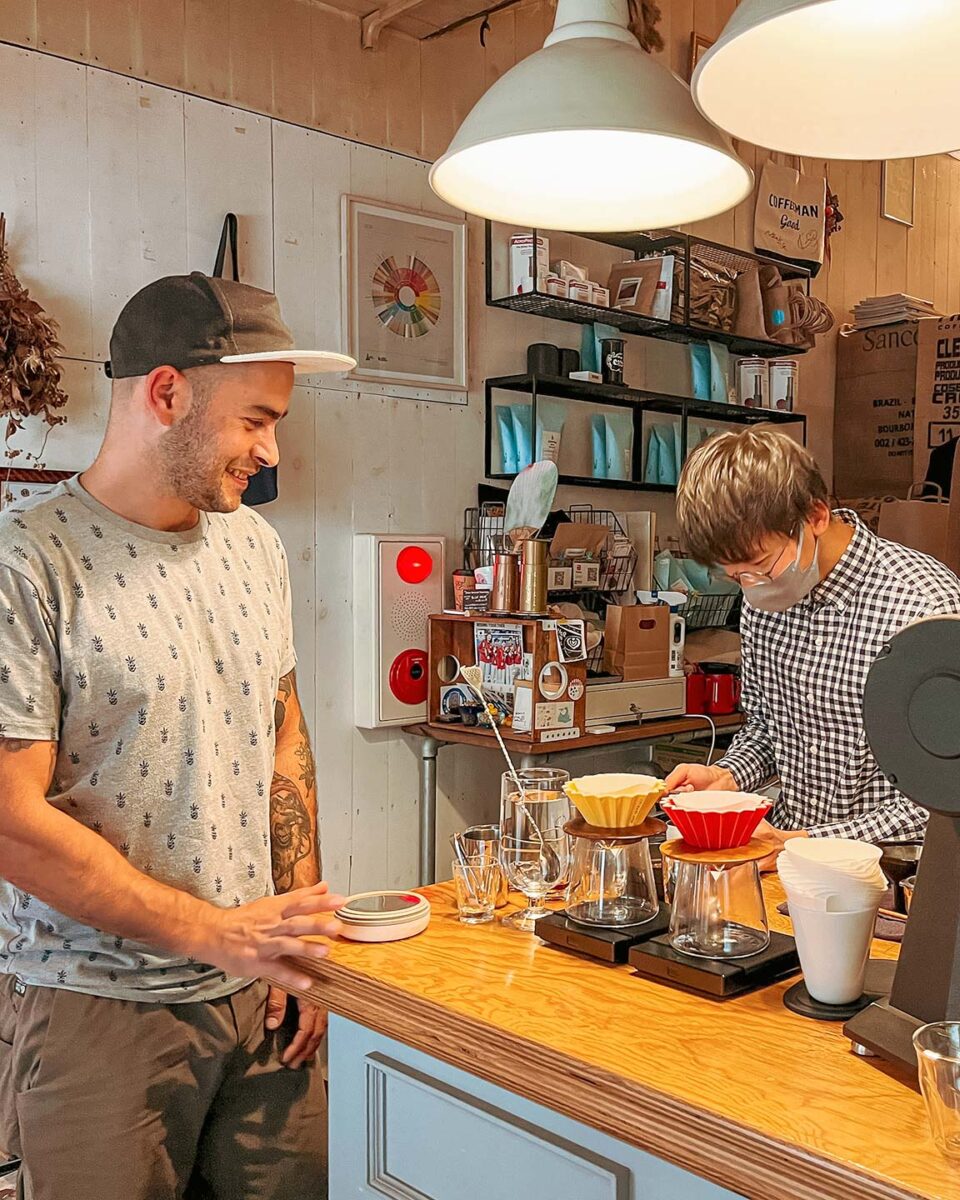
Visiting Bolivia and Peru really brought home the importance of knowing who my producers are, and now I want to learn more.
At TYPCA Annual Meeting, which brought together coffee producers from 22 countries, I introduced myself to Fikri from Java Frinsa Estate, and Nadine from Primavera Coffee, who I’d been buying from for three years. This was something I never could have done before.
I also wanted to share this feeling with others, so when I bumped into another roaster from Aomori at the SCAJ event, I took him over to take a photo with some of the producers from Bolivia. He loved it and told me how he’d never have felt confident enough to go up to them on his own. It reminded me of the old me.
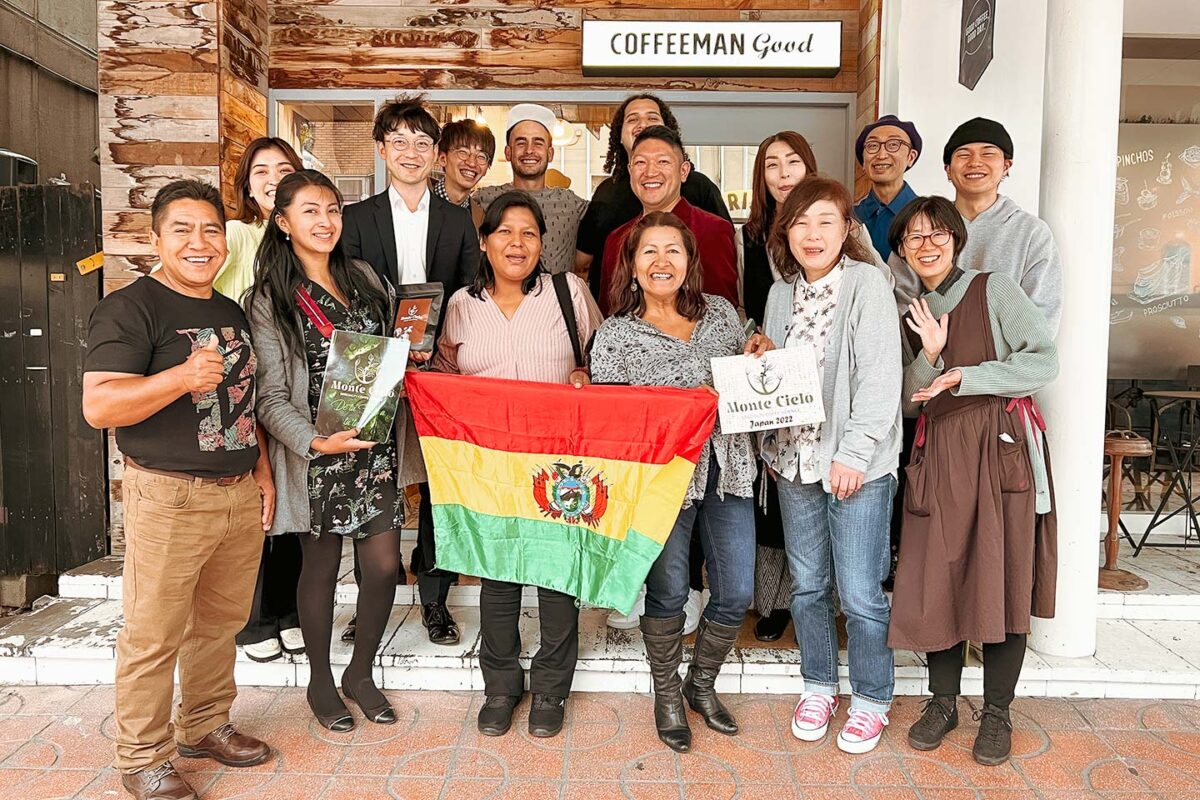
Right now, as I roast and serve coffee, I want to keep this awareness that meeting the producers has given me. And I want to share their stories with people around me. Local roasters often ask me how my trip was. But the only way to truly tell them is to go with them to Bolivia and Peru and have them experience it for themselves. This is how we keep the connection growing, and how we bring coffee to a wider audience.
COFFEEMAN good
- [Open]
- Mon,Thu, Fri, Sut, Sun: 10:00-18:00








